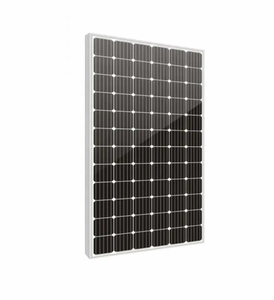Introduction to Owned Solar
Owned solar systems represent a transformative approach to sustainable energy, allowing businesses and homeowners to harness the power of the sun directly. By investing in owned solar solutions, users gain energy independence, significantly reduce electricity bills, and contribute positively to the environment. This shift towards renewable energy not only supports individual economic goals but also propels society towards cleaner energy solutions.
Types of Owned Solar Systems
- Grid-Tied Solar Systems: These systems remain connected to the local energy grid, allowing users to receive credits for excess energy generated.
- Off-Grid Solar Systems: Ideal for remote locations, these systems provide complete energy independence, using battery storage to maintain power supply during non-sunny periods.
- Hybrid Solar Systems: Combining the features of grid-tied and off-grid systems, these setups offer flexibility and backup power during outages.
- Community Solar Projects: This type allows multiple stakeholders to invest in a shared solar system, providing a cost-effective way to utilize solar energy without individual ownership.
Function and Features of Owned Solar
- Renewable Energy Generation: Owned solar systems convert sunlight into electricity, reducing reliance on fossil fuels.
- Long-Term Savings: Once installed, solar panels significantly decrease utility costs, providing savings that can accumulate over decades.
- Low Maintenance: Solar panels require minimal upkeep, often only needing occasional cleaning and routine inspections.
- Energy Independence: By owning a solar system, users reduce their dependence on conventional energy sources, insulating themselves from price volatility.
- Increased Property Value: Properties equipped with owned solar systems often see a boost in market value, making them attractive investments.
Applications of Owned Solar Systems
- Residential Use: Homeowners can utilize solar energy to power their households, significantly lowering their energy bills.
- Commercial Use: Businesses can implement owned solar to offset operational costs, enhancing their sustainability profile.
- Agricultural Operations: Farms can benefit from solar systems to power irrigation, refrigeration, and other energy-intensive processes.
- Remote Installations: Off-grid owned solar systems are perfect for powering tools and equipment in places without access to the electric grid.
- Community Initiatives: Local organizations can come together to fund owned solar projects, increasing energy access and resilience within communities.
Advantages of Investing in Owned Solar
- Environmentally Friendly: Using solar energy minimizes carbon footprints and contributes positively to climate change mitigation.
- Government Incentives: Many regions offer tax credits, rebates, and grants for individuals or businesses that install solar systems, increasing the financial viability.
- Energy Security: As power outages become more common, owning a solar system provides a reliable energy source that can function independently.
- Technological Advancements: Continued improvements in solar technology enhance efficiency and affordability, making solar ownership increasingly accessible.
- Job Creation: The solar industry drives job opportunities in manufacturing, installation, maintenance, and beyond.















































